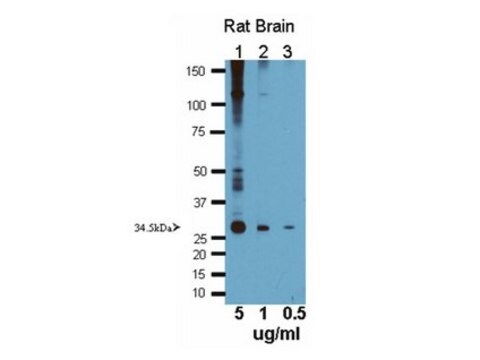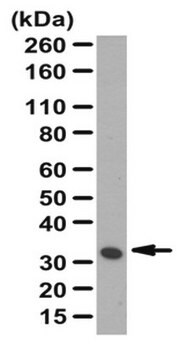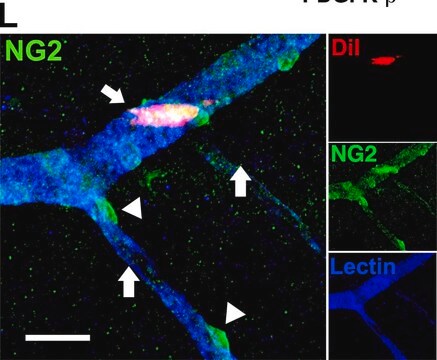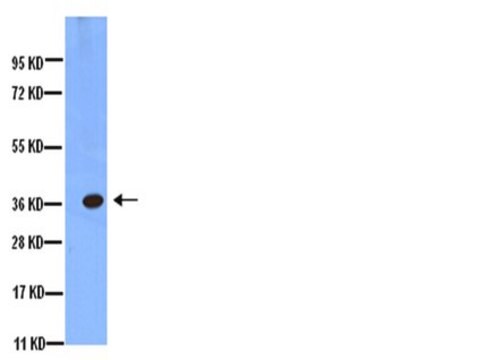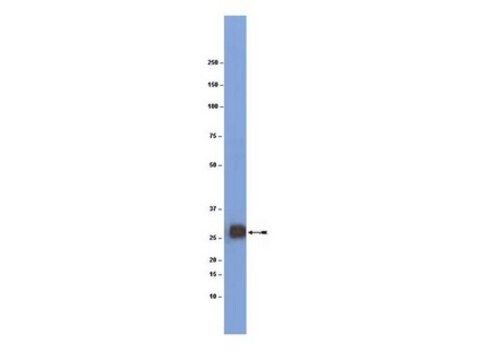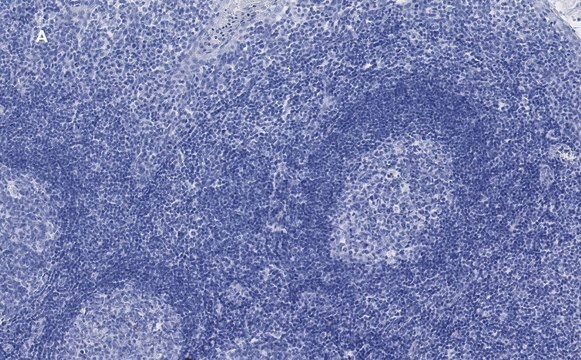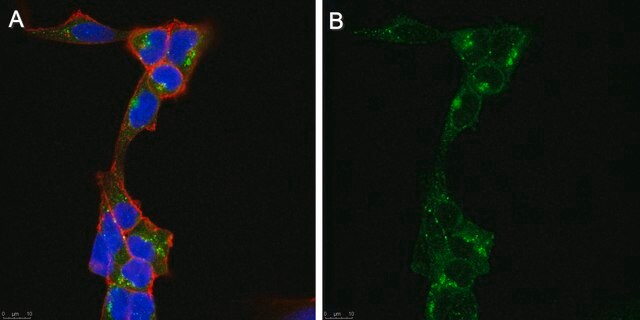MABN2471
Anti-Aquaporin-4 Antibody
mouse monoclonal, mECD
Sinónimos:
AQP-4, Mercurial-insensitive water channel, MIWC, WCH4
About This Item
Productos recomendados
Nombre del producto
Anti-Aquaporin-4 Antibody, clone mECD, clone mECD, from mouse
biological source
mouse
antibody form
purified immunoglobulin
antibody product type
primary antibodies
clone
mECD, monoclonal
species reactivity
human, rat, mouse
packaging
antibody small pack of 25 μg
technique(s)
flow cytometry: suitable
immunofluorescence: suitable
immunohistochemistry: suitable
immunoprecipitation (IP): suitable
isotype
IgG1κ
NCBI accession no.
UniProt accession no.
target post-translational modification
unmodified
Gene Information
human ... AQP4(361)
General description
Specificity
Immunogen
Application
Immunofluorescence Analysis: A representative lot detected Aquaporin-4 in Immunofluorescence applications (Hinson, S.R., et. al. (2017). Proc Natl Acad Sci USA. 114(21):5491-5496).
Immunoprecipitation Analysis: A representative lot immunoprecipitated Aquaporin-4 in Immunoprcipitation applications (Hinson, S.R., et. al. (2017). Proc Natl Acad Sci USA. 114(21):5491-5496).
Neuroscience
Quality
Immunohistochemistry Analysis: A 1:50 dilution of this antibody detected Aquaporin-4 in Rat brain frozen tissue sections.
Target description
Physical form
Storage and Stability
Other Notes
Disclaimer
¿No encuentra el producto adecuado?
Pruebe nuestro Herramienta de selección de productos.
Certificados de análisis (COA)
Busque Certificados de análisis (COA) introduciendo el número de lote del producto. Los números de lote se encuentran en la etiqueta del producto después de las palabras «Lot» o «Batch»
¿Ya tiene este producto?
Encuentre la documentación para los productos que ha comprado recientemente en la Biblioteca de documentos.
Nuestro equipo de científicos tiene experiencia en todas las áreas de investigación: Ciencias de la vida, Ciencia de los materiales, Síntesis química, Cromatografía, Analítica y muchas otras.
Póngase en contacto con el Servicio técnico